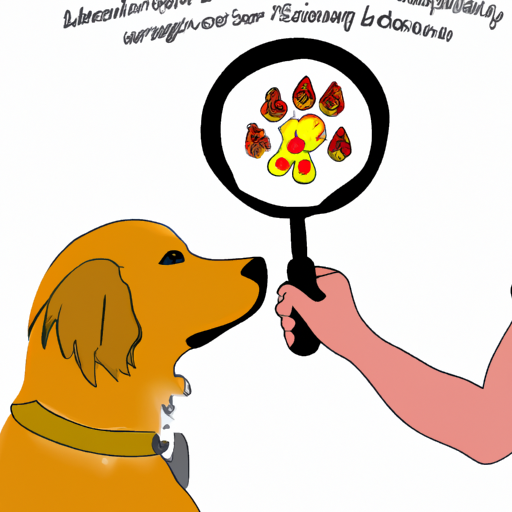Introduction
You’re a loving pet parent, always ready to take care of your four-legged friend. But as you run your hands over their coat, you feel something unusual. A patch of skin feels hotter than the rest. Maybe you’ve noticed them licking, biting, or scratching at it. You’re dealing with a hot spot, a common skin condition in dogs. But what causes these hot spots? Let’s dive into it.
1. Allergies
In some instances, your dog’s hot spots may be the result of allergies. Just like humans, dogs can have allergic reactions to a variety of things, and their skin can bear the brunt of this response.
- Food Allergies: Some dogs may be allergic to certain types of food. This can lead to itchy, inflamed skin, which can then develop into hot spots.
- Environmental Allergies: Pollen, dust mites, and mold can also cause allergic reactions in dogs. The irritated skin can become a hot spot if the dog repeatedly scratches or bites at it.
2. Parasites
Parasites are another common cause of hot spots in dogs. Fleas, mites, or ticks can cause intense itching and discomfort, prompting your pet to scratch or bite at the area.
| Parasite | Symptoms | Treatment |
|---|---|---|
| Fleas | Red, inflamed skin, hair loss, visible fleas or flea dirt | Flea treatment medication, regular grooming |
| Ticks | Red, inflamed skin, small bump where tick has attached | Tick removal, tick prevention medication |
| Mites | Itching, redness, scaling skin | Antiparasitic medication |
3. Poor Grooming
A dog’s coat needs regular grooming to stay healthy. If not, it can become matted and cause skin irritation, which can lead to hot spots.
- Matted Fur: This can trap moisture and bacteria close to the skin, causing infections and hot spots.
- Lack of Bathing: If your dog’s skin isn’t cleaned regularly, it can result in bacterial growth and hot spots.
4. Skin Infections
Bacterial skin infections can cause hot spots in dogs. If your dog has a cut or scrape that gets infected, it can quickly turn into a painful hot spot.
- Bacterial Infections: These can be caused by a variety of bacteria, but most often it’s Staphylococcus pseudintermedius.
- Yeast Infections: Yeast infections can also cause hot spots. These are usually caused by Malassezia pachydermatis.
5. Behavioral Issues
Some dogs develop hot spots as a result of behavioral issues like anxiety or boredom. If your dog is stressed or bored, they may start to lick, chew, or scratch their skin excessively, leading to hot spots.
FAQs
-
Are hot spots serious?
Hot spots can be painful for your dog and can become serious if left untreated. If you notice a hot spot, contact your vet right away. -
How can I prevent hot spots?
Regular grooming, parasite prevention, and ensuring your dog has a healthy diet and plenty of exercise can help prevent hot spots. -
Can hot spots spread to other pets?
Hot spots themselves are not contagious, but the underlying cause (like fleas or mites) can be. -
How are hot spots treated?
Treatment usually involves cleaning the area, applying topical medications, and sometimes oral antibiotics or anti-inflammatories. Your vet will recommend the best treatment.
Caring for a dog is a joyous responsibility. By understanding what causes hot spots, you can take steps to protect your furry friend and ensure they remain comfortable and healthy.



